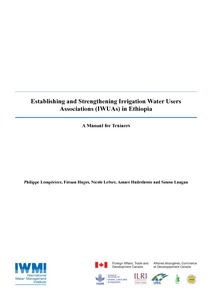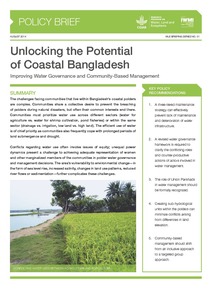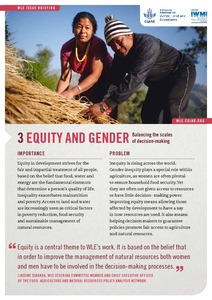Location
The International Water Management Institute (IWMI) is a non-profit, scientific research organization focusing on the sustainable use of water and land resources in developing countries. It is headquartered in Colombo, Sri Lanka, with regional offices across Asia and Africa. IWMI works in partnership with governments, civil society and the private sector to develop scalable agricultural water management solutions that have a real impact on poverty reduction, food security and ecosystem health. IWMI is a member of CGIAR, a global research partnership for a food-secure future.
IWMI’s Mission is to provide evidence-based solutions to sustainably manage water and land resources for food security, people’s livelihoods and the environment.
IWMI’s Vision, as reflected in the Strategy 2014-2018, is ‘a water-secure world’. IWMI targets water and land management challenges faced by poor communities in the developing countries, and through this contributes towards the achievement of the United Nations Millennium Development Goals (MDGs) of reducing poverty and hunger, and maintaining a sustainable environment. These are also the goals of CGIAR.
IWMI works through collaborative research with many partners in the North and South, and targets policymakers, development agencies, individual farmers and private sector organizations.
Resources
Displaying 211 - 215 of 959Community-driven multiple use water services: Lessons learned by the Rural Village Water Resources Management Project in Nepal
This article examines community-driven multiple use water services (MUS) as pioneered by the Rural Village Water Resources Management Project (RVWRMP) in the Far and Mid-Western development regions of Nepal. These regions are characterised by poverty, remoteness, rugged terrain, food insecurity, water scarcity, and post-conflict legacy. Water provision for domestic and productive uses provides opportunities to address poverty and livelihoods in environments with highly decentralised governance. This study explores the first-hand lessons learned in the RVWRMP in Nepal since 2006.








